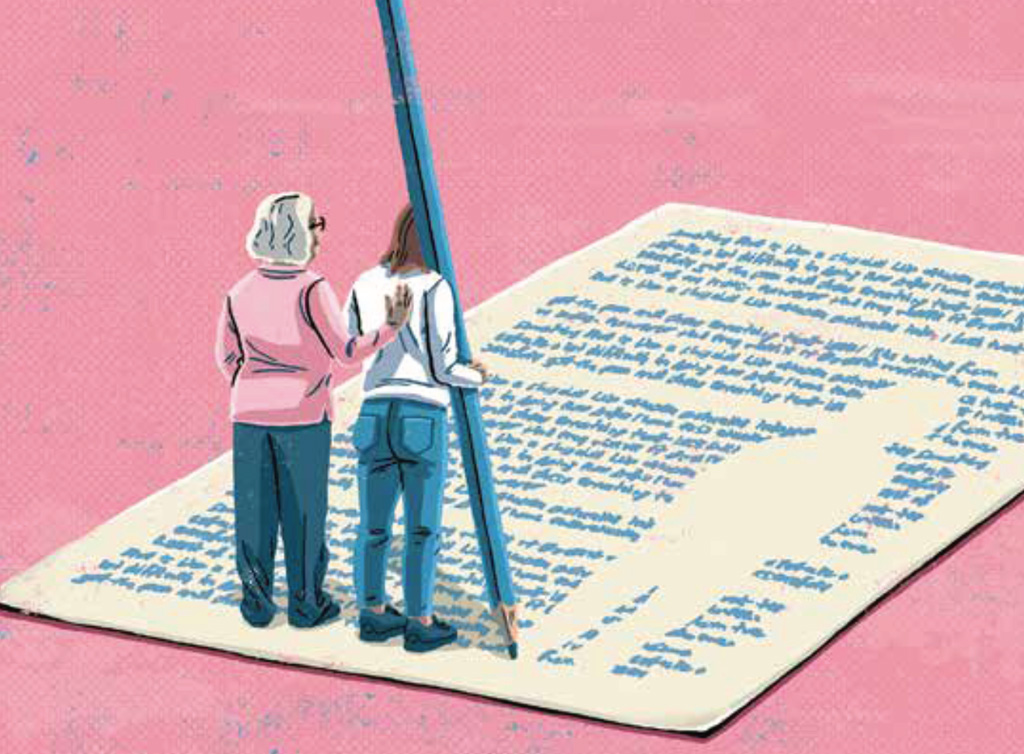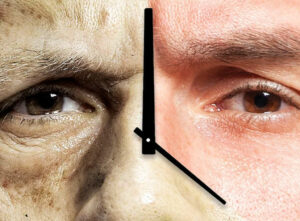After my daughter Grace died when I was eight months pregnant, my first impulse was to write it all down: the birth, surrounded by candles; the coffin and funeral where there should have been a christening; how her death had been accompanied by snowdrops lighting their way through the frozen ground in the first stirring of spring. I felt I was the only one really to have known her and I wanted her acknowledged. I wrote a diary as a way of making my daughter real and published it in a magazine. It helped.
I’ve since learned that this is a common impulse in the bereaved. Especially bereaved parents, who feel an urgent and deep-seated need to remember and honour their children.
Grace’s death was unexplained, the autopsy revealed nothing, but I still felt her death had been my fault and I thought I would die from the pain. I saw a midwife counsellor, which helped me hugely, and when my daughter Edie was born, two and half years later, I felt my grief had been “cured”. And yet here I am 22″years later standing in a converted barn in the rolling Derbyshire hills preparing to remember my daughter, as part of a weekend organised by the Good Grief Project. I’m wearing a name tag, that says as much: Sharon, remembering Grace. Sixteen other retreat guests are wearing similar name tags, all here to remember their children.
I had wanted to come here, to write about the retreat, not so much for myself, but to let other bereaved parents know that this brilliant charity exists, to let parents know that they don’t have to grieve alone and there are people here to support them.
The death of a child is thankfully rare, but it still affects more families than you might think. Approximately 6,000 people under the age of 24 die in the UK every year, leaving up to 50,000 newly bereaved parents, siblings and grandparents. One in every 200 babies is stillborn. And while we’re getting better at talking about death generally – Atul Gawande’s Being Mortal has sold millions of copies and in recent years we’ve seen the burgeoning of “death dinners” where people grapple with their own mortality – the death of a”child is the last taboo.
Some courageous souls are beginning to break the silence. Mary Berry, whose son William died in a car crash at 19, has talked openly and movingly about her bereavement. John Legend and Chrissy Teigen recently posted on Instagram a photograph of them cradling their baby Jack, who they lost at 20 weeks, sparking a”public outpouring of support, but also criticism that this public display of grief was too intimate, too personal. I completely understood their need to reach out and share their pain and though my initial reaction was shock, I then thought: “Thank God, we’re having this conversation.”
The Active Grief Weekend is the work of bereaved parents Jane Harris and Jimmy Edmonds, whose son Josh died in a traffic accident in Vietnam, aged 22, in 2011. The pair are using their combined skills as a”therapist and filmmaker to share their “active grief” philosophy with other bereaved parents. Jane and Jimmy’s other children, Joe and Rosa, are also here. Personal trainer Joe leads the !tness classes, while Rosa has taken time off from her job in !lm to cook for us. It is a retreat for the bereaved by the bereaved, all the workshop leaders are bereaved parents themselves.
“Being active and being creative has been our family’s way of coming to terms with Josh’s death,” says Jane. “We set up these retreats as a way of giving that to people who are grieving, because a lot of people said they just button it up or mask it. But the consequences of that can be incredibly damaging.” Harris knows from her work as a”therapist that grief has a horrible way of !nding its way
out, whether that’s through mental health issues, such as anxiety or depression, or physical illness.
“The family realised that our love for Josh wasn’t going to go away and we were going to have to !nd new ways of incorporating him into our lives. You think you might die from the pain and the heartbreak, but we have learned as bereaved parents that there is a process of internalising. You !nd ways to fold your child into your heart. You think that you will forget the sound of their voice. Or the experiences you had with them, but you don’t.” The couple have made several !lms about grief and Jimmy, a Bafta-winning !lmmaker, has published a book of photographs, Released, dedicated to his son.
The weekend is broken into creative and active sessions designed to help parents process their emotions and talk about their children. It provides a rare opportunity for bereaved parents to talk to other bereaved parents. Where !nally they don’t have to put on a brave face and can talk openly about their children. No one has to say they feel “fine” here.
“If you’re in the early stages of grief, this is a safe space to say, ‘My child has died and I want to die’ and nobody is going to say, ‘call the psychiatrist,’” says Jane. “People are going to say: “I felt that too and that was 10 years ago,
but now I feel stronger.’ So it’s a hopeful environment.”
Parents come from all walks of life. Some are recently bereaved – one mother, Emma, lost her daughter Ruby to leukaemia just four months ago – and others many years ago. There is no sell-by date on grief for a child. The causes of death run the gamut of tragedies, many of the children have lost their lives to cancer, others to accidents. Around a quarter of the parents here are bereaved by suicide, a particularly heavy cross for any parent to bare, as their grief is so often compounded by feelings of guilt, shame and stigma. One couple, Tracey and Mick, are grieving for all three of their children, Kayleigh, Sarah and Michael, who have died as a the result of a rare genetic condition, aged 20, 22 and 33. All bereaved parents want to remember and honour their children, but not everyone !nds it possible to talk.
It’s too painful and too raw. Our creative writing teacher Jo Bous!eld, here to remember her daughter Harry, explains that writing can help us get a bit of distance. “The words can buzz around in your head, but there’s something about getting them down that can give you a bit of space and you can get some new thoughts.”
We’ve each been asked to bring pictures of our children, one that means something to us, with the view of creating a new photograph of our child. Jane and Jimmy have provided boxes of props and some parents have also brought their own mementos to incorporate into the photographs. I put my faded Polaroid of Grace on a lace swatch from the prop box and surround her with flowers picked in the meadow, but I don’t feel compelled to put myself in the image. She is so small and delicate, like a tiny ghost, and I don’t want to overwhelm her. When I look at what the other parents have done, each image tells a story. Many of the men, who have remained largely silent, have expressed a powerful sense of love and loss in their images. Mick is surprised to find he has placed himself at the centre of his three children. The look in his eyes speaks volumes.
Other parents clearly got a lot out of the weekend, too. “I felt a need to meet other bereaved parents and to meet them in person, not just over Zoom,” Emma tells me. “I wanted living proof that they live, that they can breathe and that they laugh. That there is a possibility of thriving. All the activities were an added bonus.” Of course, nothing can !x life for a parent whose child has died. But Jane and Jimmy and their family show that life can go on and be good again, or “good enough” as Jane puts it – and good enough is fine.
After Josh died, Jane’s stepson Joe connected with Josh’s best friend Hollie. “They got incredibly close in their grief and fell in love. So out of this tragedy we have this very bittersweet thing,” says Jane. “I wish Josh hadn’t died and I’d do anything to bring him back, but Josh is dead and I can honestly say I’m OK with that now. It’s the worst thing that Josh died, but it’s the most beautiful thing that I have two beautiful grandchildren.”




